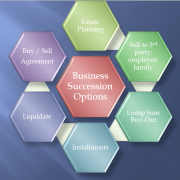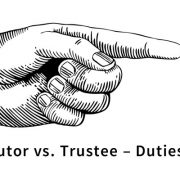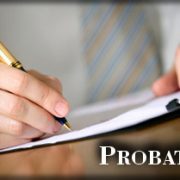Business Succession Options
Cleveland, Ohio business succession attorney Dan Baron offers the following on estate planning and business succession:
You’ve spent a lifetime building your business and now its time for retirement. Where do you start? When developing your business succession plan, it’s important to consider all of your options. Selling and/or transferring your business will have significant implications on your estate plan, taxes, family, and financial well-being. Here are a few suggested options with a discussion on these implications.
Valuation
Regardless of whether you sell to your family, third-party, or friend, you will need a complete evaluation of your business. Many business owners overvalue their business because they’re place an emotional value on the blood, sweat, and tears they’ve spent growing their business over the years. It’s imperative to get a third-party evaluation on your business to better understand what your company is worth, and who is willing to buy.
When evaluating, your business attorney and/or financial advisor will consider several approaches to your company’s worth:
- Market Approach – Revenue growth, profitability, company size, liquidity
- Income Approach –Revenue growth, profitability, cost of capital, leverage; Working capital efficiency; Low capital expenditures
- Asset Approach –Asset intensive, leverage, scarcity, time
Now that you have a value, how should you sell your business in an effective way to provide a secure retirement while considering tax consequences? Let’s consider the following options.
Lump Sum
Selling your business for millions of dollars is every business owners dream. However, this may not be a viable option for several reasons. First, if selling to employees or family, these buyers may not have enough capital or credit to purchase your business’ worth. Next, selling your business outright will result in a large capital gain and tax consequence compared to taking payments over timer. It could also place you in a different tax bracket entirely. Thus, when considering selling for a lump sum, you should consult with your estate planning and business attorney to consider all the tax consequences and other planning tools available
Lump Sum + Installments
If a lump sum will create an unfavorable tax consequence, then you can structure the deal so that you take a smaller lump sum up-front and payments over time. Your business attorney will suggest taking a lump sum that is just under the threshold of a tax bracket.
Installments Only
If selling to family or employees, installment payments are an affordable way to sell your business. However, many times the business owner will still be involved when selling to employees and moreover, the business needs to be sustainable in order to receive the payments over time. In other words, you can’t get paid if they business fails over time.
Self – Cancelling Installment Note
Here the business owner gives his employees the business in exchange for a promissory note – usually purchased by employees. The promissory note is usually coupled with a personal guarantee from the employees. Payments are then made over time but cease when the business owner passes away. This option reduces capital gains and estate taxes. However, the payments made will be set at a premium set by the IRS mortality tables to account for the business owners lifetime. If the business owner lives past this time, the payments cease. If the owner dies before this timeline, the payments cease.
There are several other options business owners have when selling their business. For more information, or to request a free consultation with a Cleveland, Ohio business and estate planning attorney, contact Baron Law LLC today at 216-573-3723.








